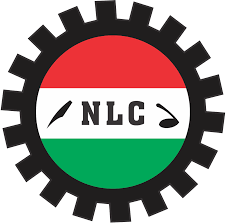NIGERIA’S ORGANISED LABOUR has issued a direct challenge to the International Monetary Fund (IMF) and the World Bank (WB), demanding an immediate halt to lending money to governments that fail to uphold accountability to their citizens.
The Explainer gathered that the Nigeria Labour Congress (NLC) made the call at a high-level meeting in Washington DC, where global labour leaders engaged with representatives of the Bretton Woods institutions. NLC President Joe Ajaero, in a powerful address, argued that these financial institutions have worsened poverty and undermined Nigeria’s development through policies that prioritise debt repayment over human progress.
Nigeria, Africa’s largest economy, is grappling with a soaring debt burden. As of September 30, 2024, Nigeria’s total public debt stood at $113.4 billion, with external debt constituting a significant portion. In December 2024, the National Bureau of Statistics reported an inflation rate of 34.80%, reflecting a marginal increase from the previous month. However, following a rebasing exercise in January 2025, the inflation rate was recalculated to 24.48% year-on-year.
Despite substantial borrowings, economic hardships have intensified, with critics arguing that mismanagement of funds has hindered tangible development in sectors such as education, healthcare, and infrastructure.
“Lending to governments that do not prioritise the welfare of their people is not development; it is exploitation. It entrenches corruption, fuels inequality, and undermines democracy,” Ajaero stated.
For decades, the IMF and World Bank have prescribed structural adjustment programmes (SAPs) and austerity measures as conditions for loans to developing nations. The Explainer gathered that these policies, which often involve subsidy removals, public sector downsizing, and increased taxation, have led to widespread economic distress in Nigeria.
“The IMF and World Bank have, for decades, prescribed austerity measures that prioritise debt servicing over human development,” Ajaero stated. “These policies have eroded public services, weakened labour rights, and deepened poverty.”
The NLC President highlighted the new tax proposals in Nigeria, which include levies on individuals earning as little as ₦800,000 per annum (approximately $500).
“If that is not a regressive tax proposal, nothing else will,” he argued, emphasising that workers and the poor are being unfairly targeted while the wealthy and multinational corporations exploit tax loopholes.
Ajaero warned that IMF and World Bank-backed economic prescriptions have become a systemic failure that disproportionately burdens the working class. “Why do these institutions continue to lend to profligate and dictatorial governments that are unaccountable to their citizens?” he asked. “Is it a deliberate strategy to push nations like Nigeria further into a cycle of debt and underdevelopment?”
The labour leader called for an urgent shift from austerity-driven policies to progressive taxation that ensures the wealthy contribute their fair share.
“IMF and WB must tax wealth and not poverty,” he stated, urging them to advocate higher taxes on luxury goods, capital gains, and the ultra-wealthy.
He stressed that social dialogue must be prioritised in economic decision-making, ensuring workers, who form the bulk of taxpayers in developing economies, have a seat at the table.
“Whether a tax is regressive or progressive begins at the table where it was conceived. Any group that is not at the table is on the menu,” Ajaero warned.
ALSO READ: UPDATED: IBB’s Autobiography In Eyes of Netizens
Beyond taxation, the Explainer gathered that NLC is urging the IMF and World Bank to support the United Nations Convention on Tax, an initiative designed to curb tax evasion by multinational corporations and ensure all nations have a say in shaping global tax policies.
“The IMF and WB should close loopholes by ensuring multinational corporations pay their fair share of taxes in the countries where they operate,” Ajaero insisted.
He also called for a redirection of tax revenues towards social protection, including funding for education, healthcare, and safety nets for the most vulnerable.
Ajaero described the current debt-driven development model as unsustainable and unjust. “Fiscal consolidation must not come at the expense of the poor. It must be rooted in equity and justice,” he declared, stressing that the IMF and World Bank have a moral obligation to ensure their policies do not exacerbate inequality or undermine national sovereignty.
The Explainer learned the Nigeria Labour Congress (NLC) has joined a growing chorus urging global financial institutions to reassess their lending practices to developing nations. Both the African Union (AU) and the United Nations Conference on Trade and Development (UNCTAD) have expressed concerns over lending practices that may entrap nations in cycles of debt.
UNCTAD’s “Principles on Promoting Responsible Sovereign Lending and Borrowing,” published in 2012, highlight the shared responsibilities of lenders and borrowers in preventing unsustainable debt situations. These principles aim to foster prudent lending and borrowing to promote growth and development while avoiding the adverse effects of irresponsible financing.
The AU has also addressed issues related to financial flows and debt management. A report by the AU’s High-Level Panel on Illicit Financial Flows from Africa emphasizes the need for concrete actions to understand and curb illicit outflows, which undermine the continent’s development.






















